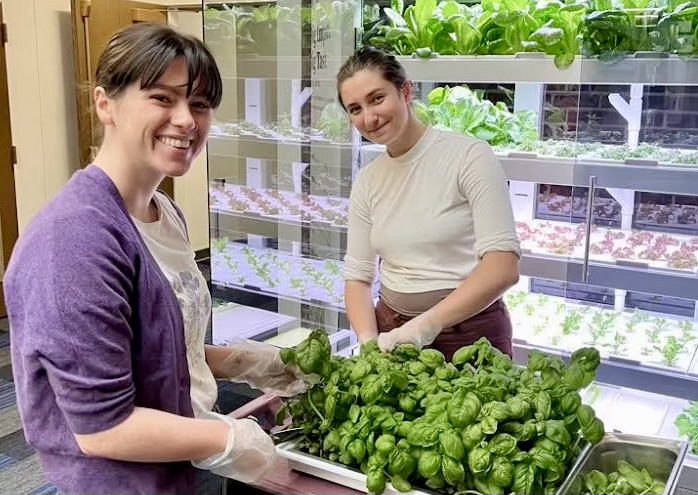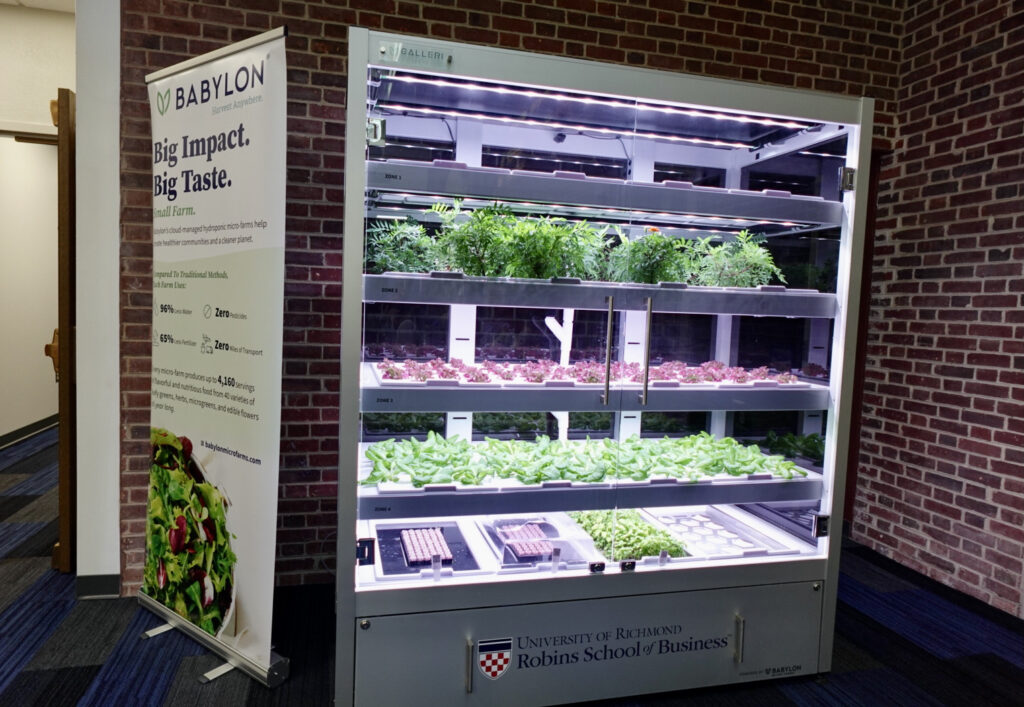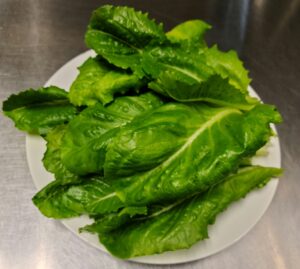
Megan Maybee Salters (right) and a fellow student harvest greens and herbs from the Babylon Micro Farm in Robins Business School. (Photo by @URDINING)
Growing Sustainable Futures: the Micro-Farm at the University of Richmond’s Business School
By Claire Le Du
Collaborating with the company Babylon, students at the University of Richmond started a small farm in a corner of Robins Business School this January. It’s remarkable to consider that growing food in a business school was feasible, yet Megan Maybee Salters, a University of Richmond senior, and three other students made it possible.

Megan accepted a challenge from Joyce Van Der Laan Smith, a professor in the Robins School of Business, to build a program focused on reducing waste and making the campus more sustainable.
“Dr. Smith created this program a few years ago and asked students to propose ideas on how to make the campus more sustainable,” said Megan. “In the past, it was composting; this year it’s solar lights posted around campus.”
While this was a step towards sustainability, Megan and her team knew there was more that could be done. They conceived the idea of collaborating with Babylon Micro-Farms, a Virginia-based company that develops sustainable solutions with the ultimate goal of ending food insecurity all around the world. Babylon provided small growing stations that offer over 45 varieties of nutrient-dense and ultra-fresh leafy greens, herbs, micro-greens, and edible flowers—a kind of micro-farm.
“We were interested in how we could bring this station into the business school, as an educational purpose and to create hyper-local food,” Megan said.

Babylon provided QR codes for each plant species, allowing students to learn about the various types of plants and how they grow indoors, allowing students to scan each species and track plant growth over time.
“I think this micro-farm is a good introduction to how food is grown,” Megan said. “We’re not as connected as we used to be to the food we source in our daily lives.” And by educating students about sustainable farming practices, they can build a community around a greener planet.
The micro-farm was installed in January, and by March they had begun growing food. The first crop was mostly organic lettuces (right) that were even included on the menu at Lou’s Café.
“America and the world are dependent upon a food system that, with climate change, will be less reliable,” said Megan. “Thinking about how we can source food locally and do it ourselves is the most important thing we can do to prepare.”
